This week I was invited to speak to several hundred high school students about the “soul of economics.” I decided to do the entire presentation in memes. Here’s what I said.
If I ask “What’s the soul of economics?,” you might be incredulous: “Economics has a soul??” I’m here today to try to convince you that it does.
What I mean by “soul” is what the Oxford English Dictionary calls an “essential, fundamental, animating, or vital part or feature of something abstract.” Economics certainly has that.
What follows is my attempt at spelling out what it is – but in memes.1 This could not go wrong.
Most people don’t know what economists are up to. Ask people around you, and you’re likely to get wildly divergent answers.
The reason people don’t know what economists do is that they don’t know what economics is – or what drives it. One may think that economics is the study of money, and that what motivates economists to study it because they want to make more of it.
The answer is not unreasonable. Economists do deal with money. But that’s not the only thing economists study; it’s not even the most important thing that economists study. It would make sense to study economics even in the world without money. And getting rich is not what motivates the enterprise.
A. C. Pigou, the “father of welfare economics,” helped define the project. He wrote:
It is not wonder, but rather the social enthusiasm which revolts from the sordidness of mean streets and the joylessness of withered lives, that is the beginning of economic science.
The sentiment appears from left to right on the political spectrum. Karl Marx famously said that the point is not just to interpret the world, but to change it. Friedrich A. Hayek agreed:
It is probably true that economic analysis has never been the product of detached intellectual curiosity about the why of social phenomena, but of an intense urge to reconstruct a world which gives rise to profound dissatisfaction.
Pigou’s predecessor Alfred Marshall called economics “a study of mankind in the ordinary business of life.”
The wording reminds us that economics is not just about higher ambitions and aspirations. It’s not just about lower urges either. It is not only about money and riches – although it is about that too. Economics, to Marshall, is about any and all human desires, behaviors, and activities connected to human welfare.
Arts and culture, war and peace, labor and leisure, sex and drugs and rock’n roll are all examples of the economic in Robbins’s sense.
The most influential conception of economics around, though, goes back to Lionel Robbins. He wrote: “Economics is the science which studies human behaviour as a relationship between ends and scarce means which have alternative uses.” Some version of this line appears in economics textbooks even today, almost 100 years later.
Economics, according to Robbins, is about human behavior in a situation when things are scarce. That just means there’s less than people want. Under scarcity, we can’t get everything we want. We must make decisions. The decisions require tradeoffs – giving up one thing in order to get another.
Robbins definition makes sense of the fact that we could do economics even in a world without money. Money is not fundamental; scarcity is.
The economic sphere, therefore, is not limited to questions of money or even material things. Arts and culture, war and peace, labor and leisure, sex and drugs and rock’n roll are all examples of the economic in Robbins’s sense.
Marshall, Pigou, Hayek, and Robbins’s vision shaped modern economics in fundamental ways. Economics is about individual choices under scarcity – but also about the consequences of those choices for society as a whole.
Economics is about small things. It’s also about big things. It’s always about what’s good for people – what makes their lives worth living.
Importantly, economics is not just about understanding how the world works – it’s about changing it. Far from a disinterested, cool, and calculating project, economics sprung from deep disappointment with the state of the world – and a passionate desire to improve it.
Economics has a soul, and this is it.
For the non-meme treatment, I refer you to chapter 1 of my book How Economics Can Save the World: Simple Solutions to our Biggest Problems (Penguin, 2023).





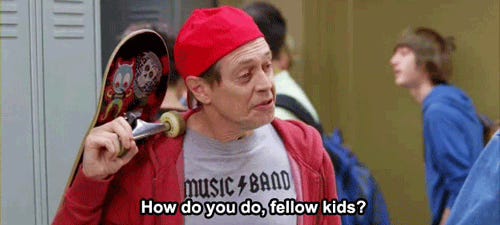

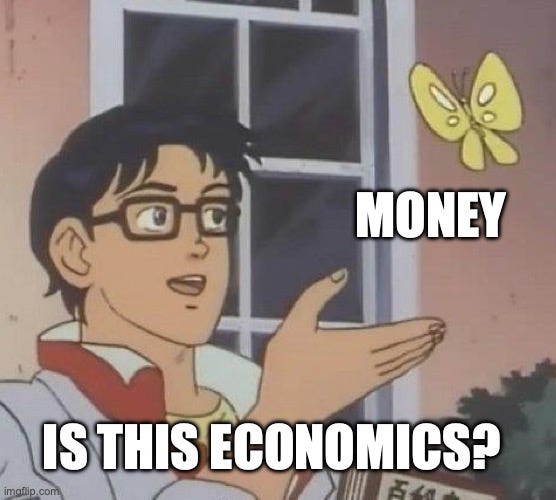
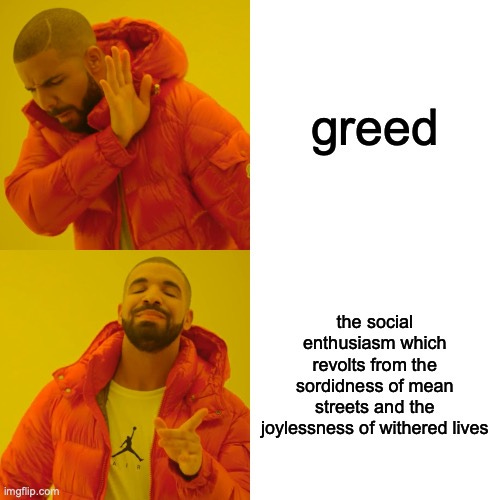
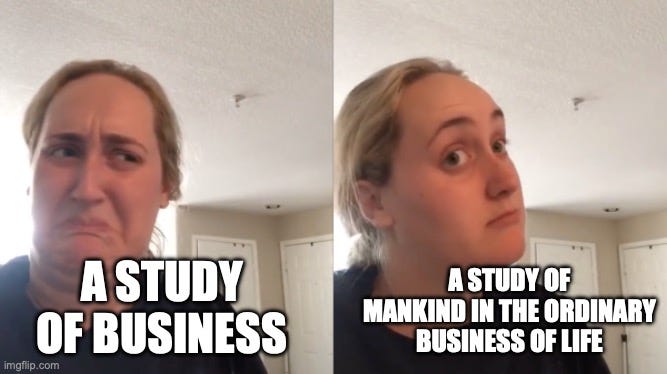
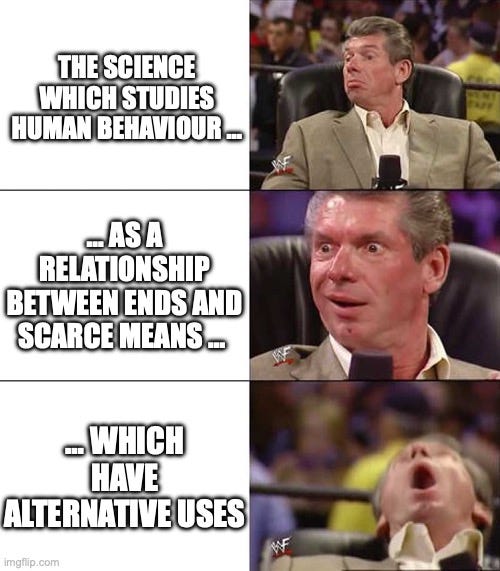
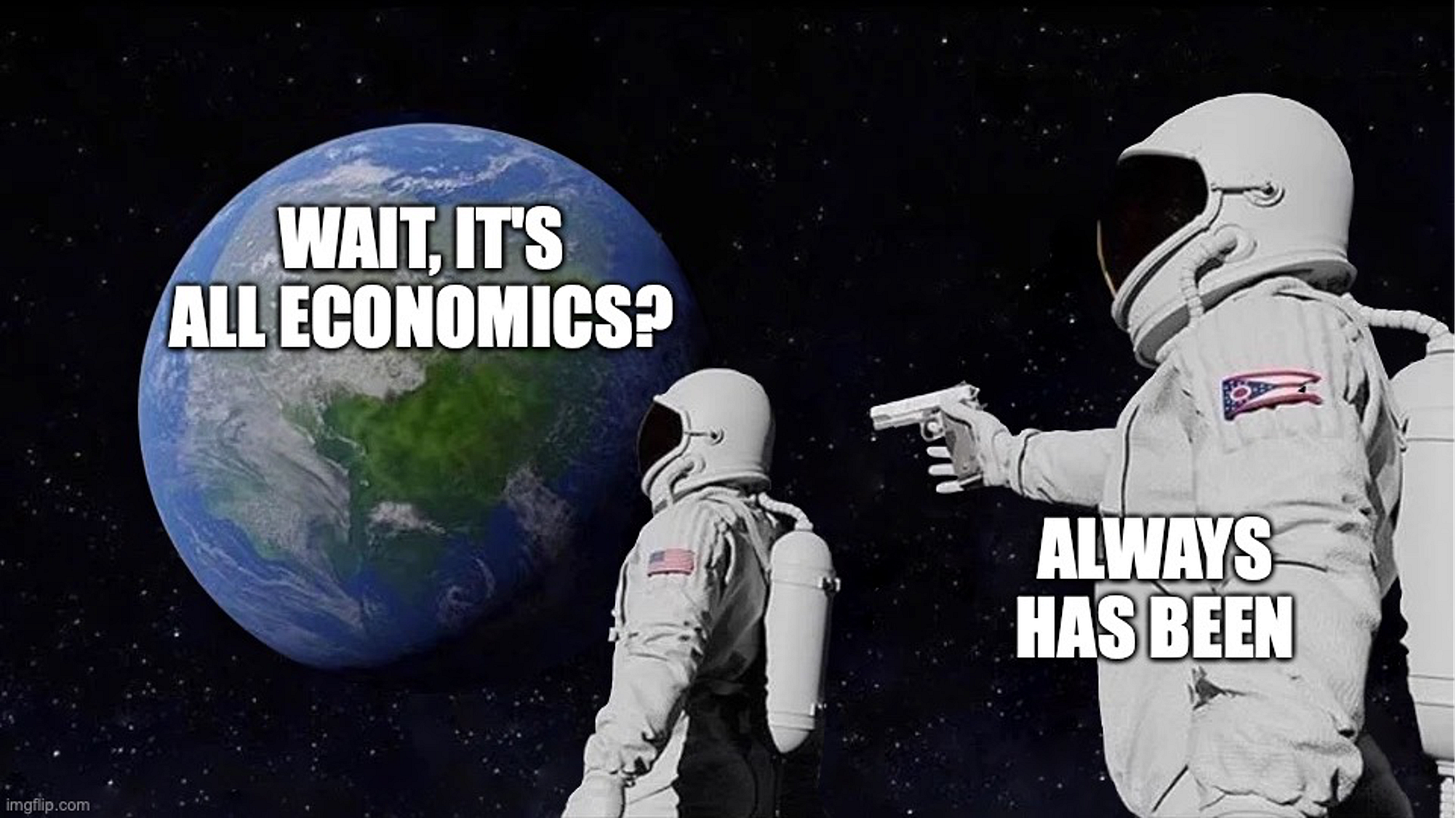

wondering if there's any room for an idea of economics that relates to decisions made in abundance instead of scarcity. is that possible? or would that be the study of something else besides economics?